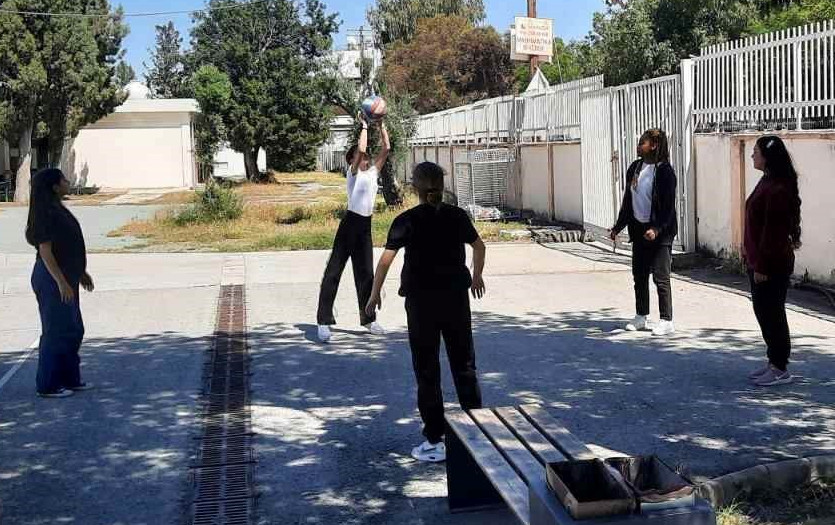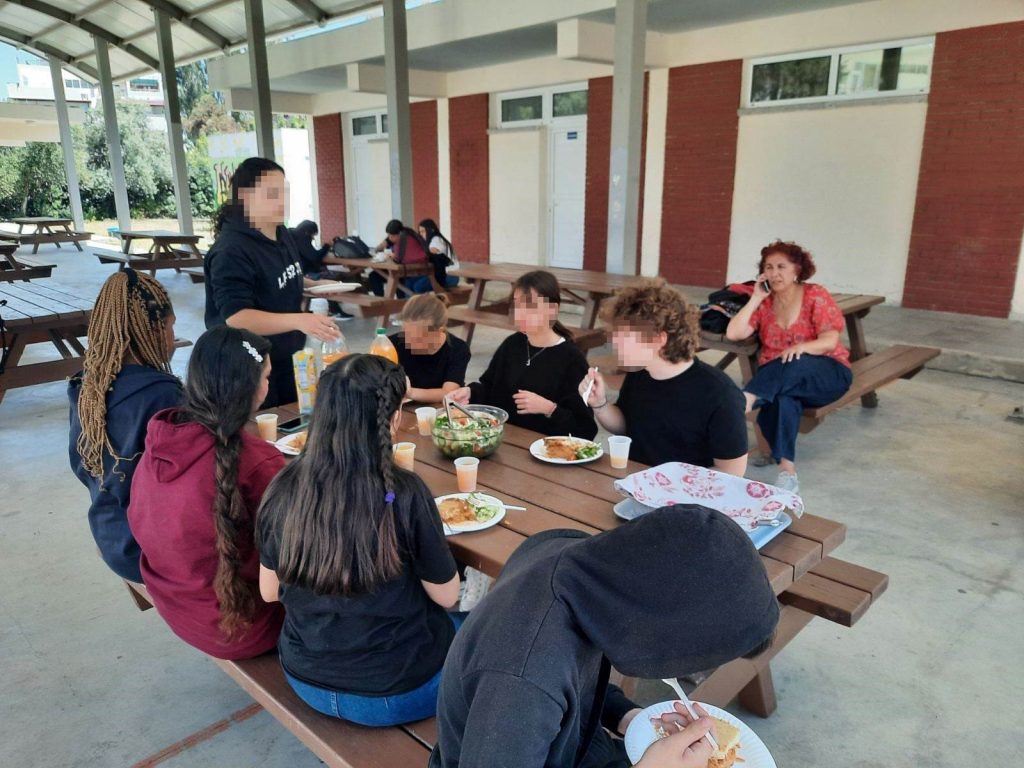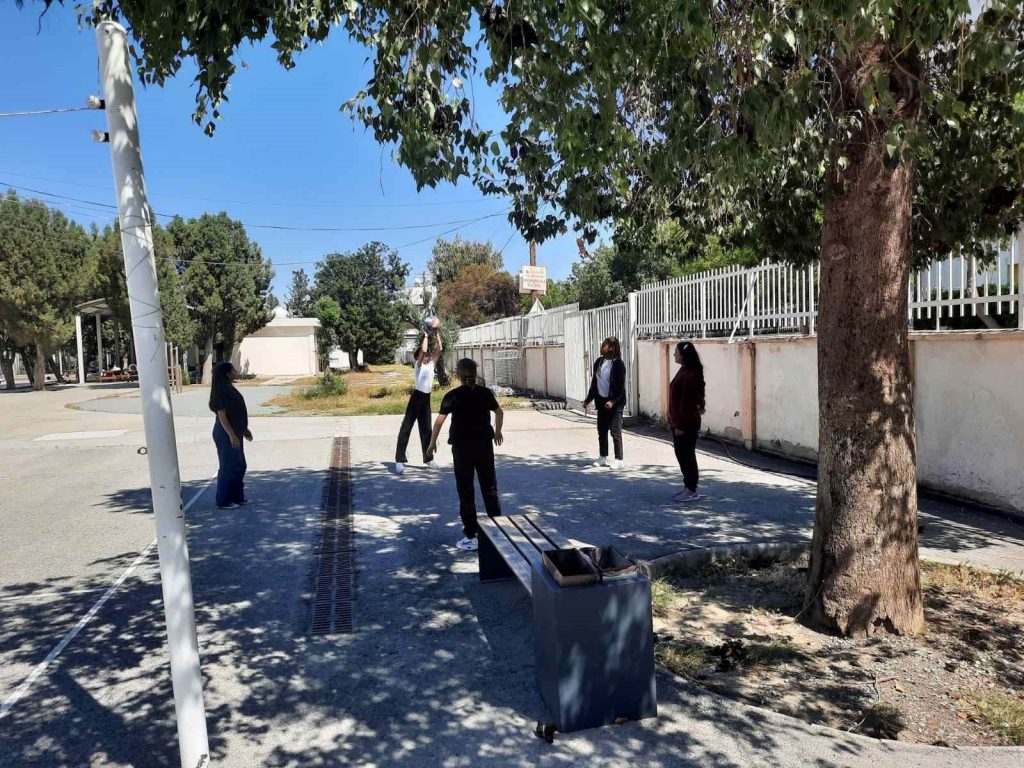
Always happy to get together
In the framework of the activity “Always happy to get together”, within the pilot My ideal school; the school I would like, 20 students and 8 educators from Pallouriotissa High School (Lyceum) worked together in different activities that would support migrant students’ inclusion in the school environment. This activity was co-designed by and for students who attend the “transitional” class of the school. A transitional class addresses the needs of migrant minors who arrive in Cyprus at an older age and encounter heightened challenges in assimilating into the education system due to linguistic and cultural obstacles.
This activity started from the idea of a school that eats together (as it was suggested in the original pilot action) and resulted in a multiplicity of activities that focused on creating a stronger school community that allowed students to socialise with each other; get to know one another better; discuss issues that affect their lives; discover common interests, and so on. This activity created a bond between students who were only attending the transitional class with students attending the regular curriculum classes. They played board games together, exercised together, learned about recycling, and reusing together. They discussed their ideal school in Greek and English and learned phrases from diverse languages (Arabic, Chinese, Russian, Ukrainian, Somali, etc.). And, of course, they had lunch together using this opportunity as a vehicle for intercultural learning and community building.
Each week’s workshop was designed using the world-café approach. Through this approach, participants could engage in meaningful conversations, share ideas, and collectively envision an ideal educational setting. Teachers and researchers were acting as facilitators and translators. Teachers were setting up small group conversations around cafe-style tables (benches in the school yard), where students could rotate between tables and contribute their thoughts and perspectives on specific questions or topics related to the ideal school. The methodology encouraged active listening, open dialogue, and diverse perspectives, fostering a collaborative and inclusive atmosphere. By utilizing the World Café methodology, participants could tap into collective wisdom, generate innovative ideas, and gain a deeper understanding of the elements that contribute to their ideal school.
This activity placed a significant value on students’ voices, leading educators to acknowledge them as active agents in their learning journey, not just passive recipients of information. The teachers respected the need of the students to meet, connect and establish relationships with peers outside of the transitional class. It demonstrated that they were experiencing a sense of marginalisation and emphasised the importance for their feelings to be acknowledged and respected. Care and compassion were fundamental in that process. Students brought unique perspectives, experiences, and ideas that enriched the original activity and contributed to a more holistic and student-centred approach.

